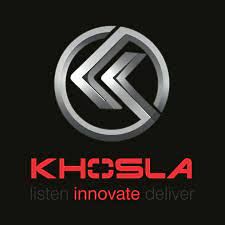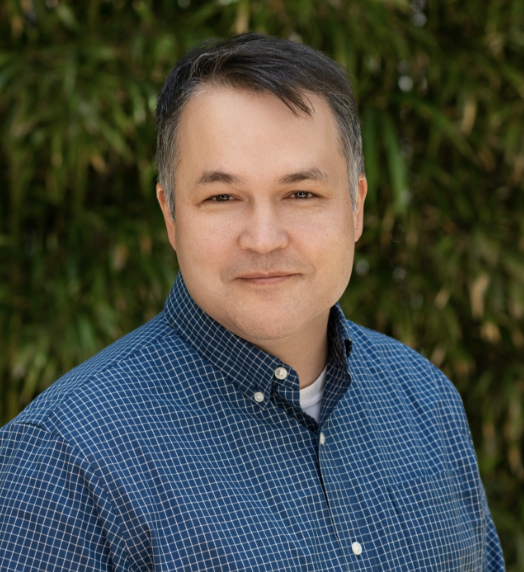预约演示
更新于:2025-12-08

Khosla Machines Pvt Ltd.
更新于:2025-12-08
概览
关联
100 项与 Khosla Machines Pvt Ltd. 相关的临床结果
登录后查看更多信息
0 项与 Khosla Machines Pvt Ltd. 相关的专利(医药)
登录后查看更多信息
16
项与 Khosla Machines Pvt Ltd. 相关的新闻(医药)2025-09-19
CRISPR gene editing, one of the most impactful biological tools of the 21st century, famously has its origins in microbial warfare. The technology was based on enzymes that bacteria use to defend themselves against viruses. But viral invaders have a few tricks of their own, and now scientists are raiding their armory to build the next generation of gene editing technologies.
Stylus Medicine is at the forefront of renewed interest in recombinases, proteins that some viruses use to stitch their genes into bacteria. If they can be repurposed, it would give scientists a long-sought way to deftly insert entire therapeutic genes at safe spots in the human genome, something that CRISPR still struggles to do.
The company’s roots lie in Ami Bhatt’s lab at Stanford, which
created a bioinformatics tool
that helps spot new recombinases in a sea of microbial murk. Although other scientists have toyed with turning recombinases into genetic engineering tools, their utility has been limited because they have evolved to target bacterial DNA sequences — and unlike CRISPR, they were difficult to reprogram for use in human cells.
But numerous recombinases discovered by Bhatt and her graduate student Matthew Durrant have begun to change that. In 2019, they began recruiting a team that would include Stanford scientists Michael Bassik and Lacramioara Bintu, UC Berkeley scientist Patrick Hsu and graduate students Josh Tycko and Alison Fanton to help screen and test newly uncovered proteins.
The results,
published
in 2022, caught the attention of RA Capital Management and Khosla Ventures, which quietly backed Stylus Medicine with $40 million that year. New artificial intelligence tools emerging around the same time have allowed the startup to create recombinases never before seen in nature, which are built for editing human genes.
Recombinases could have many applications, but when
Stylus emerged from stealth
with an additional $45 million in May 2025, it announced a single-minded focus on engineering immune cells inside the body to fight cancer. The technique, known as
in vivo
CAR-T cell therapy
, could eliminate the most expensive and onerous aspects of cell therapy.
It’s also a hot area for deals and venture capital. Three pharma companies acquired
in vivo
CAR-T startups earlier this year, and dozens of small startups are joining the race.
“The level of interest is higher than I’ve experienced in any field,” Stylus CEO Emile Nuwaysir told
Endpoints News
. But despite that, he says he’s undaunted by the competition. “Just because it’s crowded doesn’t mean it’s solved,” he added.
Nuwaysir sees limitations with his competitors’ approaches, including the durability of treatments that only use mRNA to temporarily reprogram immune cells, and the expensive manufacturing and potential safety risks of genes delivered by lentiviral therapies.
Stylus is going for a more durable approach, using its recombinase (encoded in an mRNA molecule) to permanently slip cancer-fighting genes (delivered as DNA) into immune cells. By packaging mRNA and DNA pieces into the same lipid nanoparticle, the synthetic system could be cheaper and more scalable than viral vectors.
But the company will have to pull off a trio of technical feats to get the approach to work. First, its lipid nanoparticles must selectively shuttle the medicine into T cells and avoid getting soaked up by the liver.
Once the cargo is unloaded, the therapy must traverse the cell’s interior and breach the nucleus without setting off any alarm bells — something that exposed DNA is prone to do. Nuwaysir said Stylus has a trick for clamping down that inflammation, but he’s not divulging the secret.
Finally, the company’s recombinases must accurately, efficiently and safely plop therapeutic DNA into the genomes.
Just a few years ago, solving any one of these puzzles — targeted nanoparticles, non-viral delivery of DNA, and a new gene editing system — could have been enough to build a company around. But with investor
disillusionment in gene editing companies running high
in 2025, Nuwaysir believes that all three must come together for the company to make an impact.
“To break through is to provide a medicine,” he said. “What we don’t want to do is just provide another technology.”
The 45-person company is still testing the approach in monkeys, but Nuwaysir is beginning to think about running the first clinical test in China, where investigator-initiated studies give drugmakers flexibility to test different doses and formulations of a drug at a fraction of the cost and time of traditional clinical trials.
If Stylus is eventually successful, Nuwaysir believes it could transform CAR-T therapy into something that helps not just thousands of people, but millions.
“It will change the paradigm when we get to the point where
in vivo
engineering is as safe and effective as a vaccine,” Nuwaysir said. “I want to be part of that future where those medicines are broadly available.”

细胞疗法免疫疗法
2025-06-30
Circulate Health, a startup offering a potential anti-aging procedure, has raised $12 million in seed funding led by Khosla Ventures, the companies told
Endpoints News
in exclusive interviews.
The startup’s procedure, called therapeutic plasma exchange, is already being offered at clinics for about $8,000 to $10,000 a session. That makes it a somewhat unusual business for Khosla’s biotech team, which typically invests in companies, including longevity-focused ones, developing new treatments that require years of testing and vetting by regulators before commercializing them.
Alex Morgan, a partner at Khosla, told Endpoints that Circulate was an attractive investment because the company can begin collecting data — from paying customers — “without deploying a tremendous amount of capital to see whether it works,” he said. Early data “are suggestive that it will provide benefit, and we’re going to try to figure out what that benefit is, and how beneficial,” Morgan added. Seaside Ventures and CSC Ventures also contributed to the seed funding.
Plasma exchange is an existing medical procedure sometimes used to remove problematic antibodies that cause autoimmune diseases. A patient’s blood is extracted, and blood and immune cells are then separated from plasma, the liquid portion of blood that contains other molecules. The cells are returned to the patient along with additional fluid to make up for the lost volume.
Circulate’s process is largely the same, but the company is pitching it as a way to improve healthspan. “This is an off-label use for an FDA-cleared device,” CEO and co-founder Brad Younggren said. The process can take a few hours and removes as much plasma as safely possible, usually two to three liters, he added.
Therapeutic plasma exchange has recently garnered attention among alternative health promoters and the longevity crowd, with recipients of the procedure sometimes posting pictures holding their bag of plasma. It’s an offshoot of a previous trend of companies offering transfusions of “young blood,” sourced by people in their teens and 20s. Young blood transfusions, however, drew ire from the FDA, which warned of risks from the unproven and potentially dangerous therapies in
2019
and
2024
.
In Circulate’s case, rather than putting allegedly helpful things into the bloodstream, it is centered on removing potentially harmful molecules that it believes accumulate in the bloodstream with age. “We take out all of the inflammatory cytokines and proteins,” Younggren said.
The startup has its own clinicians that perform the procedure at existing sites, most of which brand themselves as “longevity clinics,” Younggren said. The new funding will help Circulate double from 22 to
more than 40 clinics by the end of the year, including its first locations outside the US, he added.
Khosla has been quietly building Circulate for a few years based on work from its co-founder Eric Verdin, a prominent longevity researcher.
The startup ran a small clinical trial with Verdin’s Buck Institute for Research on Aging, testing plasma exchange in 42 healthy people in their 60s on average. Participants got the treatment a total of six times either monthly, twice a month, or twice a month along with an intravenous immunoglobulin (IVIG) infusion to make up for the antibodies sucked out during the plasma removal. Ten people in the study got a sham procedure.
The study, published in
Aging Cell
in May, notes that people who got the therapy had fewer inflammatory proteins in their blood. But the measure the Buck Institute and Circulate have promoted the most is a 2.6-year reduction in “biological age,” a number that can be higher or lower than a person’s chronological age.
Changes to the biological age are not proven to be meaningful for long-term health, and the results varied widely depending on what treatment regimen participants got and which test was used to assess biological age. The study is more blunt about tangible impacts on health, noting that “[t]here were no clinically meaningful changes (e.g., functional, cognitive, or symptomatic) observed or assessed in this short-term study.”
But the company and its investors believe the potential benefits make it worth offering.
“This therapy could have a powerful impact, but it will take years to see how this evolves, because we’re going to treat people and see what happens to them,” Morgan said. “It’s safe. I think people should have a chance of being able to go get it as long as they’re well informed.”
The funding will also pay for additional studies, including one using Circulate’s procedure to remove microplastics from the blood. Younggren said he envisions future studies for moving other toxins like mercury and PFAS too. Morgan mentioned the startup is interested in investigating the impacts of plasma exchange on brain health and cognition.
“There’s a bunch of other research we want to do,” Younggren said. “We have a bunch of ideas about new indications, new reasons why people would get this.”

2025-05-14
Stylus is developing an in vivo gene editing platform. Credit: Natali_Mis/iStock via Getty Images.
Biotech startup Stylus Medicine has launched with $85m in funding to develop a new class of in vivo genetic medicines that bypass the manufacturing and delivery challenges associated with ex vivo gene editing therapies.
The company’s funding includes an initial $40m Series A round led by RA Capital and Khosla Ventures. These parties also supported a $45m extension, alongside Chugai Venture Fund, Eli Lilly, and Johnson & Johnson Innovation – JJDC.
Stylus Medicine is aiming to address limitations in the field of genetic medicine by shifting away from ex vivo approaches, which involve extracting, modifying, and reinfusing a patient’s cells.
The biotech is developing an in vivo platform that enables direct gene integration within the body, beginning with chimeric antigen receptor (CAR)-T cell therapies, which aim to treat cancer by modifying immune cells to target tumours, but current ex vivo methods are often resource-intensive and not easily scalable.
According to Stylus, its platform enables high-efficiency, high-specificity genomic integration, potentially simplifying treatment workflows and broadening patient access.
Dr Nessan Bermingham, an operating partner at Khosla, said: “The genetic medicines revolution began decades ago, but despite the immense therapeutic potential, we’ve treated a limited number of patients because of manufacturing and delivery challenges, and the inability to deliver large genetic payloads.
GlobalData Strategic Intelligence
US Tariffs are shifting - will you react or anticipate?
Don’t let policy changes catch you off guard. Stay proactive with real-time data and expert analysis.
By GlobalData
Learn more about Strategic Intelligence
“Most genetic medicines available today are an important proof-of-concept, but not a practical solution.”
Stylus plans to use the new capital to advance its platform and develop a pipeline of in vivo therapeutic programmes, with an initial focus on oncology. The company will present preclinical data at the American Society of Gene & Cell Therapy (ASGCT) annual meeting, taking place during 13-17 May in New Orleans. The data will include results from a single-dose study using a CD3-targeted LNP formulation delivering a recombinase and a CAR.
The company is led by CEO Dr Emile Nuwaysir, former CEO of Bayer’s cell therapy subsidiary BlueRock Therapeutics. He is joined by Stylus’ chief scientific officer Jason Fontenot, who previously served in the same role at Sangamo Therapeutics.
“By removing the complexity of ex vivo and viral manufacturing, we will dramatically simplify patient treatment. Our goal is to bring the life-saving promise of genetic medicines to every patient in need, starting with CAR-T therapies,” said Nuwaysir in the 13 May announcement.
Stylus’ emergence comes at a time of heightened scrutiny in the
gene editing space
.
Many companies in the sector such as Editas Medicine and Intellia Therapeutics have implemented significant workforce reductions and streamlined their pipelines amid a more cautious investment climate. For example, Editas cut 65% of its workforce and halted the development of its sickle cell disease therapy in December 2024. Intellia, which previously laid off 15% of staff last year,
announced further reductions
of 27% in January 2025.
In March 2025, Sarepta and Roche reported the death of a teenage male patient who had received their Duchenne muscular dystrophy (DMD) therapy Elevidys (delandistrogene moxeparvovec). While further studies of the drug were halted due to the news, these have since continued.
Free Whitepaper
Optimise your cell therapy process: a guide to cell thawing
Typically carried out at the point of care, errors in cell therapy thawing could compromise treatment efficacy, leading to significant patient impact as well as high costs and a compromised reputation for the product’s developer.
This guide addresses how cell thawing has historically developed into the new techniques used today, along with the physical and biological implications of key metrics and components such as warming rate and ice structure. Also included are reviews of key studies from scientific literature and a consideration of the interactions between cooling and warming rates, as applicable to cell and gene therapies.
Thank you.
You will receive an email shortly. Please check your inbox to download the Whitepaper.
By Cytiva Thematic
You have a right to withdraw your consent at any time, by
clicking here
. We may still continue to send you service-related and other non-promotional communications. For more information relating to our privacy practices, we invite you to review our
privacy policy
.
基因疗法细胞疗法
100 项与 Khosla Machines Pvt Ltd. 相关的药物交易
登录后查看更多信息
100 项与 Khosla Machines Pvt Ltd. 相关的转化医学
登录后查看更多信息
组织架构
使用我们的机构树数据加速您的研究。
登录
或

管线布局
2026年02月09日管线快照
无数据报导
登录后保持更新
药物交易
使用我们的药物交易数据加速您的研究。
登录
或

转化医学
使用我们的转化医学数据加速您的研究。
登录
或

营收
使用 Synapse 探索超过 36 万个组织的财务状况。
登录
或

科研基金(NIH)
访问超过 200 万项资助和基金信息,以提升您的研究之旅。
登录
或

投资
深入了解从初创企业到成熟企业的最新公司投资动态。
登录
或

融资
发掘融资趋势以验证和推进您的投资机会。
登录
或

生物医药百科问答
全新生物医药AI Agent 覆盖科研全链路,让突破性发现快人一步
立即开始免费试用!
智慧芽新药情报库是智慧芽专为生命科学人士构建的基于AI的创新药情报平台,助您全方位提升您的研发与决策效率。
立即开始数据试用!
智慧芽新药库数据也通过智慧芽数据服务平台,以API或者数据包形式对外开放,助您更加充分利用智慧芽新药情报信息。
生物序列数据库
生物药研发创新
免费使用
化学结构数据库
小分子化药研发创新
免费使用